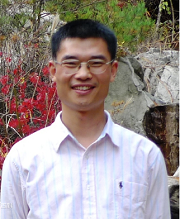
Prof. Zhujun Gu
Pearl River Water Resources Research Institute, Guangzhou, China
Title: Study on Key Issues of Intelligent Soil and Water Conservation in Southern China
Abstract:
Soil and water conservation plays a crucial role in maintaining ecological balance, ensuring agricultural production, and reducing natural disasters. In the context of high-quality development in the new era, intelligent soil and water conservation is gradually emerging as an innovative management model. This study primarily explores the main characteristics of soil and water conservation in the red soil region of Southern China, as well as the concepts, features, and application scenarios of intelligent soil and water conservation. The study encompasses four key areas: the mechanisms of soil and water conservation, vegetation structure remote sensing, AI remote sensing, and soil and water ecological restoration. Additionally, it discusses the promotion and application of these concepts in four aspects: soil and water conservation systems, intelligent water management,soil and water loss dynamic monitoring, and field survey apps.
Biography:
Zhujun Gu, PhD, Professor, and Director of the Innovation Center, Pearl River Water Resources Research Institute of Pearl River Water Resources Commission, is a member of the Education and Popular Science Committee of the China Geographic Information System Association, a council member of the Geographic Society of Jiangsu Province, the Jiangsu Association for Remote Sensing and Geographic Information Systems, and the Nanjing Western Returned Scholars Association. He obtained his Bachelor's and Master's degrees in Science and earned his PhD in Agronomy from Nanjing Normal University and the Chinese Academy of Sciences, respectively. He conducted postdoctoral research at Nanjing University and spent one year at Honam University in South Korea and one year at the University of Alberta in Canada as an advanced visiting scholar. He has conducted in-depth and sustained research on soil-water coupling mechanisms, AI remote sensing methods, and vegetation structure inversion.
Professor Gu has led three projects funded by the National Natural Science Foundation of China (with one currently ongoing) and one project funded by the Natural Science Foundation of Jiangsu province. He has participated in eight projects funded by the National Natural Science Foundation and five projects under the National Key Basic Research and Development Program. He has published over 80 academic papers, including more than 40 indexed by the Science Citation Index, and holds over ten invention patents. He has received the first prize for Scientific and Technological Progress from the Pearl River Water Resources Commission (ranked first) and the second prize for National GIS Teaching Achievements (ranked first).